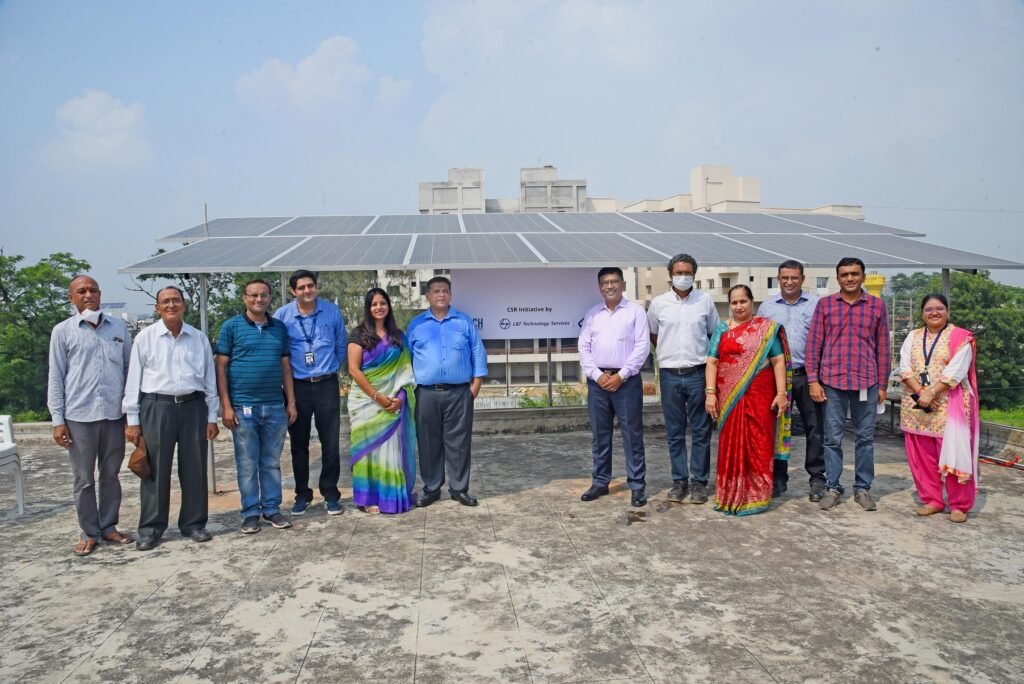On October 8th, 2021, ARCH Foundation in collaboration with L&T Technology Services Ltd. formally launched the Eco-School project by handing over Solar panels to schools from Vadodara, Gujarat. An inauguration ceremony was held to hand over the rooftop solar panels to Pragati School in Vadodara. The total installed capacity of the system is 6 KVA sufficing the electricity requirement of the school.
Prasanna Shukla, Vadodara Centre Head & global Head of PE from L&T Technology Services, and Nishant Shah, Director of ARCH Foundation handed over the Solar key to the school management. On this occasion, Shukla – the Guest of Honour emphasized the importance of sensitizing the young generation towards environment conservation.
Under the EcoSchool project, Solar Panels are installed in four Government aided schools of Vadodara. In addition to that Orbin, bin units have been installed in schools to process organic waste.

Nishant Shah, Director-ARCH Foundation talks about the EcoSchool project which is a new initiative by the organization, “An Eco-school is about more than curriculum, more than programming and more than bricks and mortar. It’s a school that supports global sustainability in every way. An Eco- school begins with the future in mind, designing a learning experience for students that will prepare them to lead the world toward a healthier, cleaner, more sustainable future.” He further adds – “Eco-School as having three distinct attributes: It is less costly to operate than a conventional school; It is designed to enhance; learning and working environment; and It conserves important resources such as energy and water.”
EcoSchool has a two-fold purpose:
Improve the ecological footprint and the sustainability performance of the school by providing alternate solutions of renewable energy
Encourage young people to play a proactive role as a change-maker in the society w.r.t. environmental protection

To plan and execute, the Eco-School program is designed based on a three-pillar framework. While the concept of Eco-School describes what an eco-school looks like, the three pillars explain how to measure progress. The three pillars were first introduced when the U.S. Department of Education launched the ED-Green Ribbon Schools award program in 2011.
Since then, over 60 organizations have adopted the basic measurement framework that they present:
Reduced environmental impact
Increased health and well-being
Increased environmental and sustainability literacy for all graduates

These three pillars are the measurable success metrics for Eco-School, and they make a real impact on both global sustainability and individual student and teacher health.
With the advent of the concept of ‘Eco-Schools, the focus is furthermore on children encouraging them to use appropriate skills to take necessary action on environmental issues which are currently the need of the hour and urgent, that need to be addressed to enjoy and reap the benefits of the world they are going to live.
(India CSR)







